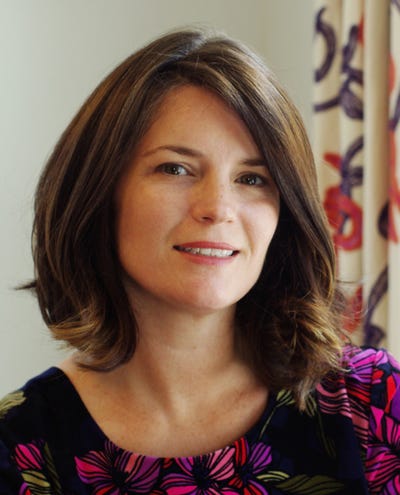Healthcare foodservice provider promotes role of teaching kitchensHealthcare foodservice provider promotes role of teaching kitchens
Morrison Healthcare turns wellness into a hands-on experience with the help of the Teaching Kitchen Collaborative.
September 26, 2018
As the old Chinese proverb goes, “Give a man a fish and you feed him for a day. Teach a man to fish and you feed him for a lifetime.” Hospitals nationwide are recognizing the opportunity to not only provide more healthful food onsite but also educate diners on how to bring those wellness principles into their own kitchens for lifelong health. One of the largest hospitals in the country, Ohio’s Cleveland Clinic launched a Teaching Kitchen series last Spring as a community-centered way to provide basic culinary skills, local food knowledge, dietary guidelines and principles.
“Our goal was to expand food, culinary and nutrition literacy in a collaborative and team building environment,” says Lisa Roberson, RDN, LD, national director of wellness and sustainability for Morrison Healthcare, which took the helm as Cleveland Clinic’s new foodservice provider in 2017. They also brought on Josh Ingraham, formerly the chef for the Cleveland Indians who has a passion for nutrition and physical fitness, as executive chef. The Teaching Kitchen series was developed in partnership with Ingraham as well as hospital chef and registered dietician Jillian Reilly to closely align the concept to Cleveland Clinic's health and wellness initiatives.

Cleveland Clinic uses a pop-up teaching kitchen model, according to Roberson, which can easily pop-up and down on a patient floor, in the café, in a classroom, waiting room or even outside at a farmers’ market. Typically, it provides a hands-on experience for a minimum of 12 participants at a time, but it can engage larger groups at specific hospital events as it did at a recent executive leadership retreat.
Classes are always instructed by a chef and registered dietitian and feature better-for-you foods that highlight a key healthy ingredient, culinary technique or promote a hospital’s mission of health and well-being. Roberson says they also introduce new foods to participants as well as “Did You Knows” – for example, how to use all parts of a fruit or vegetable.
Roberson describes two types of Teaching Kitchen classes: On one hand there is a “Burst of Learning” class, which lasts 10 to 20 minutes and covers an easy-to-assemble recipe such as a mason jar or “shaker-style” salad, or simple grain- or veggie-based dishes. Recent “Bursts” have included Vamp Up Your Vinaigrette, Spice Rubs & Marinades, Summer Beverages – the Agua Fresca and Power Breakfasts.

The other kind of class are single-subject, more in-depth instruction that typically last 60 minutes. Recent topics have included Knife Skills, Gut Health and Fermented Foods, Stocking a Healthy Pantry, Iron Chef Series: Medical Students vs. Residents, Healthy in a Hurry, No More Chinese Takeout and Plant-Forward Food Truck Tacos.
Although the Teaching Kitchen concept has been around for years at Morrison Healthcare, Roberson said it really started to take shape in 2016, with the launch of the Teaching Kitchen Collaborative. The Collaborative, started by Harvard T.H. Chan School of Public Health and the Culinary Institute of America, is a network of organizations that use teaching kitchen facilities as catalysts of enhanced personal and public health across medical, corporate, school and community settings. Compass Group, the parent company of Morrison Healthcare, is a founding member and sponsor of the Collaborative, and Cleveland Clinic is a member.
“One of the biggest challenges of bringing a teaching kitchen to life in a hospital campus is demonstrating research-based evidence of its efficacy,” says Roberson. “Most hospital leaders firmly believe it’s a good idea but like any hospital-based initiative, does the research show that it really works? The Collaborative allows for sharing of best practices among all members as well as additional strategies to help scale teaching kitchens. The group also meets each year on Teaching Kitchen Collaborative Research Day to learn about and discuss experiences related to the efficacy of teaching kitchens.”
Morrison now operates Teaching Kitchen platforms in 33 healthcare systems in addition to Cleveland Clinic and is convinced of their potential to positively impact behaviors, improve health outcomes and build community in healthcare settings. “The Teaching Kitchen brings our guests, hospital staff and visitors together with a common goal of learning easy ways to create foods that help people to feel energized and healthier,” says Roberson. “Our chefs and registered dietitians are empowered to bring their own unique experiences to the table to create a fun and engaging learning environment. And the sense of community that evolves from experiencing the Teaching Kitchen is a testimony to our belief in the power of food to connect, comfort, restore and rejuvenate.”
Read more about:
Compass GroupAbout the Author
You May Also Like



.jpg?width=300&auto=webp&quality=80&disable=upscale)


.jpg?width=300&auto=webp&quality=80&disable=upscale)